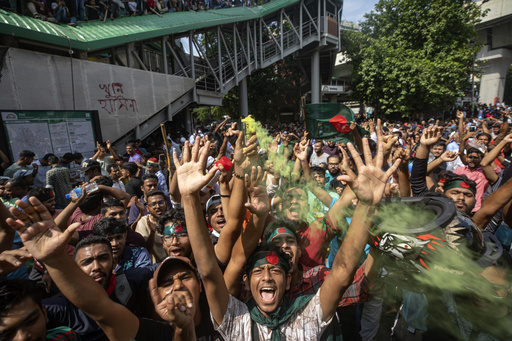A student-led movement in Bangladesh resulted in the ousting of Prime Minister, Sheikh Hasina, following weeks of protests and clashes that caused over 600 casualties. What began as student demonstrations over government jobs evolved into a widespread revolt against the country’s longest-serving prime minister. Hasina, 76, fled to India as anger against her administration grew, leading to more violence and unrest until a new interim government was established with Nobel Peace Prize laureate Muhammad Yunus at the helm. The new government’s key focus is to restore peace, combat corruption, and prepare for upcoming elections by revamping various institutions such as the courts, police, and Election Commission with support from the United Nations Development Program.
Unrest persists in Bangladesh with garment workers staging strikes for better wages, causing the closure of around 100 factories. Lingering anger against Hasina and her party remains prevalent, with Hasina currently facing murder charges in over 100 cases and many associated with her government also facing legal action. Despite some schools and universities reopening, the educational sector remains affected, with several officials forced to resign and low student attendance. There is optimism among students about the interim government’s potential for positive change.
While signs of normalcy are slowly returning to Bangladesh with eased violence and the resumption of daily activities, the morale of the police force remains low due to recent events. Restoring the economy after disruptions caused by the uprising is a major challenge, with the timing of the new elections remaining uncertain. The interim government faces the task of building consensus on reforms and scheduling the polls while navigating the potential rise of political tensions and uncertainties regarding the upcoming elections.
Yunus, who has broad youth support, is working towards stabilizing the situation; however, challenges remain in terms of security, economic recovery, and managing expectations among the populace. The Bangladesh Nationalist Party is eager for early elections, and any delays could lead to further unrest and political volatility, potentially posing new risks to law and order in the country.
This website uses cookies so that we can provide you with the best user experience possible. Cookie information is stored in your browser and performs functions such as recognising you when you return to our website and helping our team to understand which sections of the website you find most interesting and useful.
